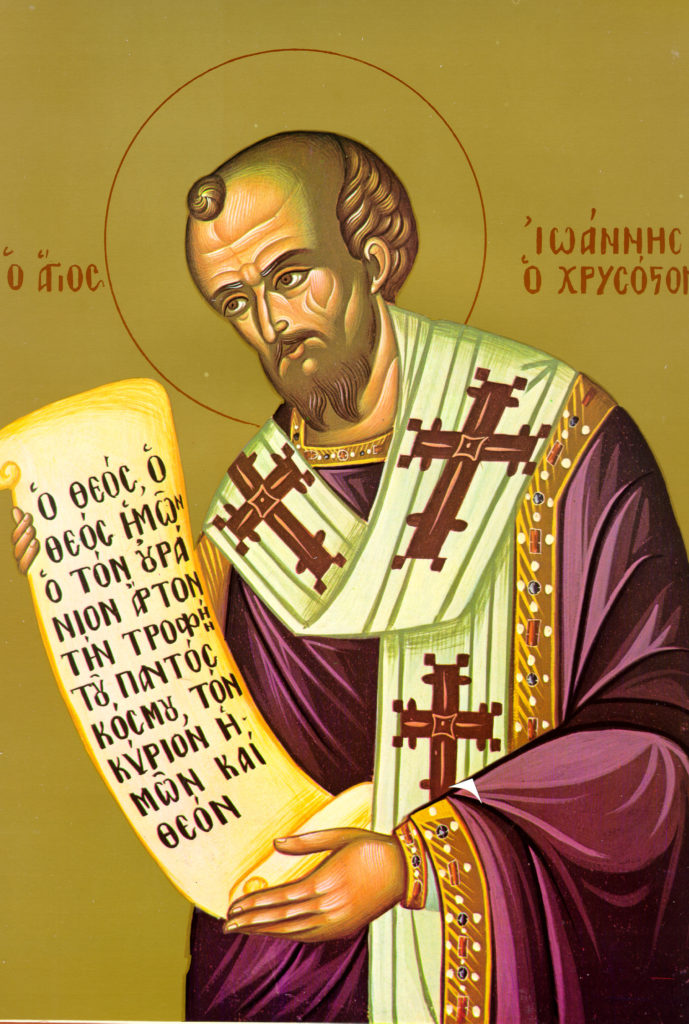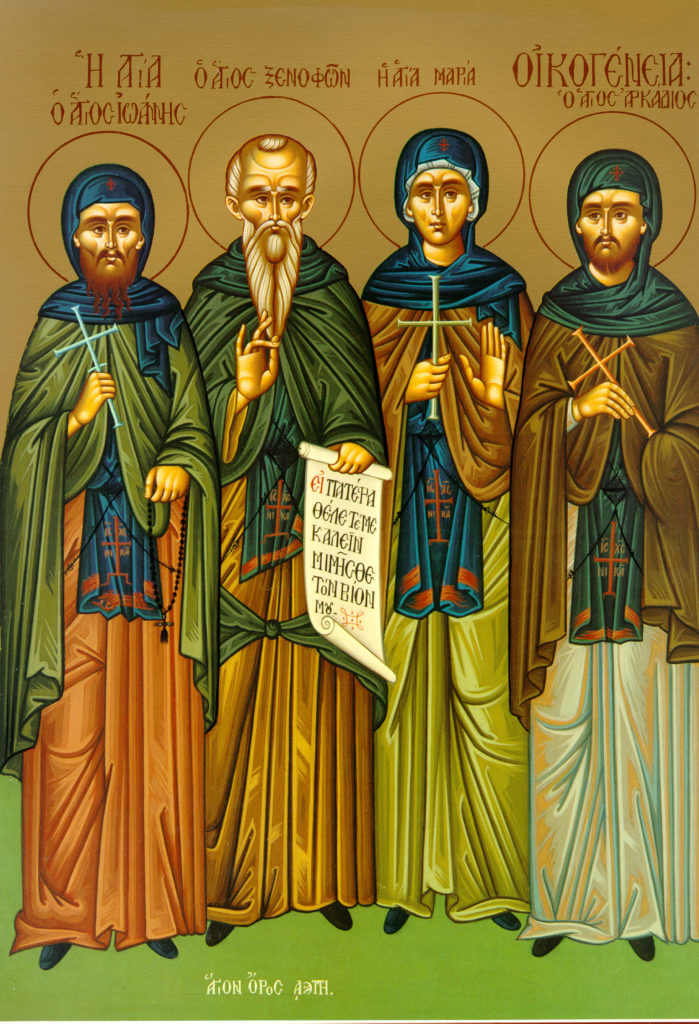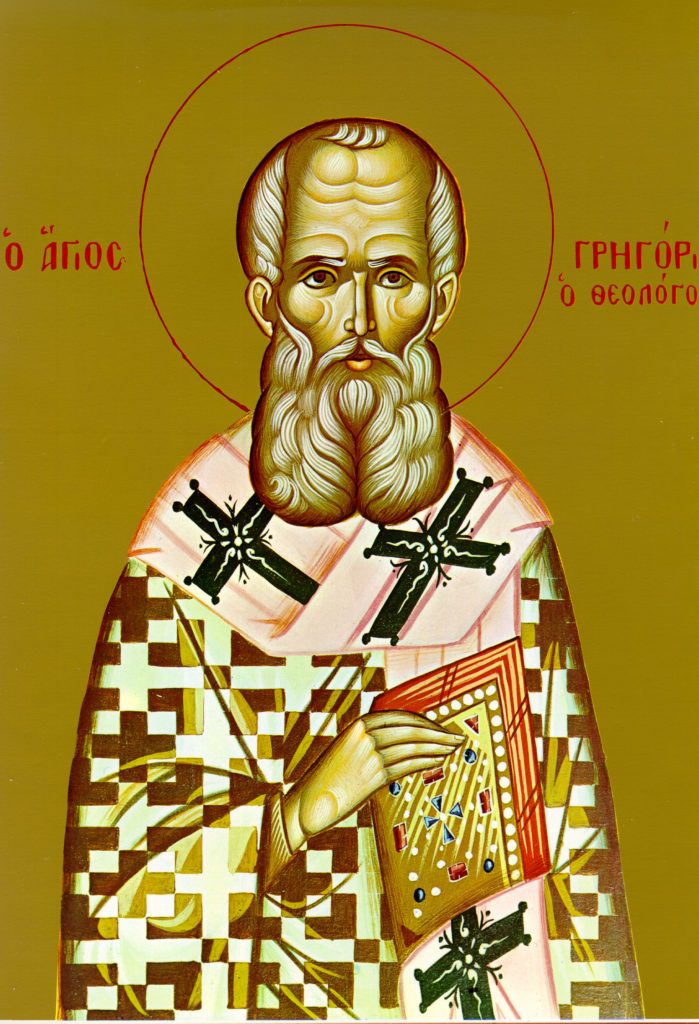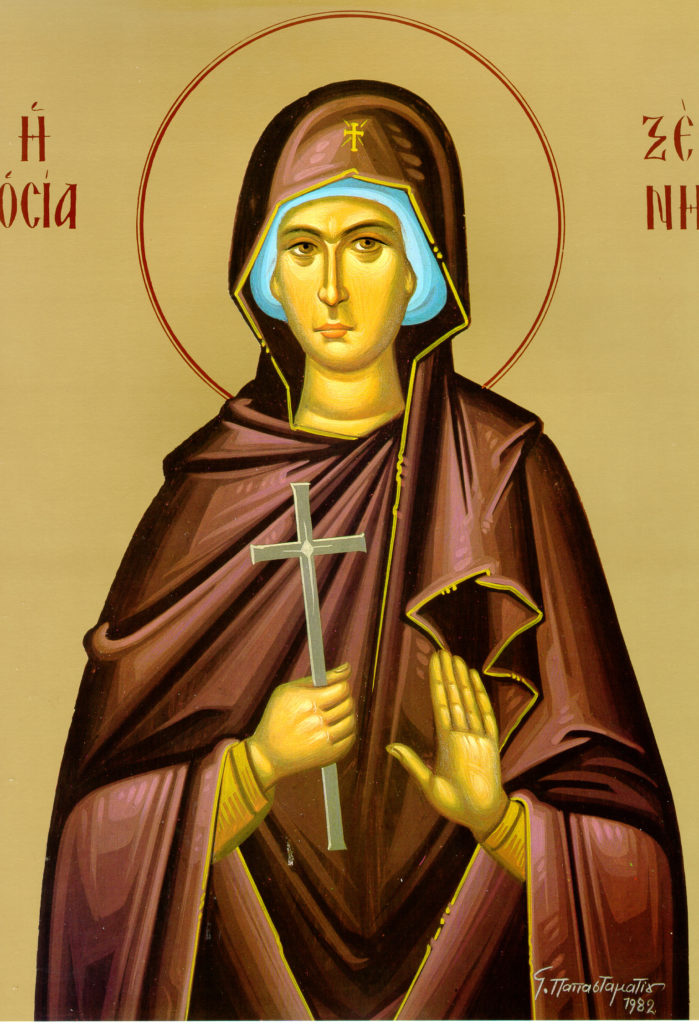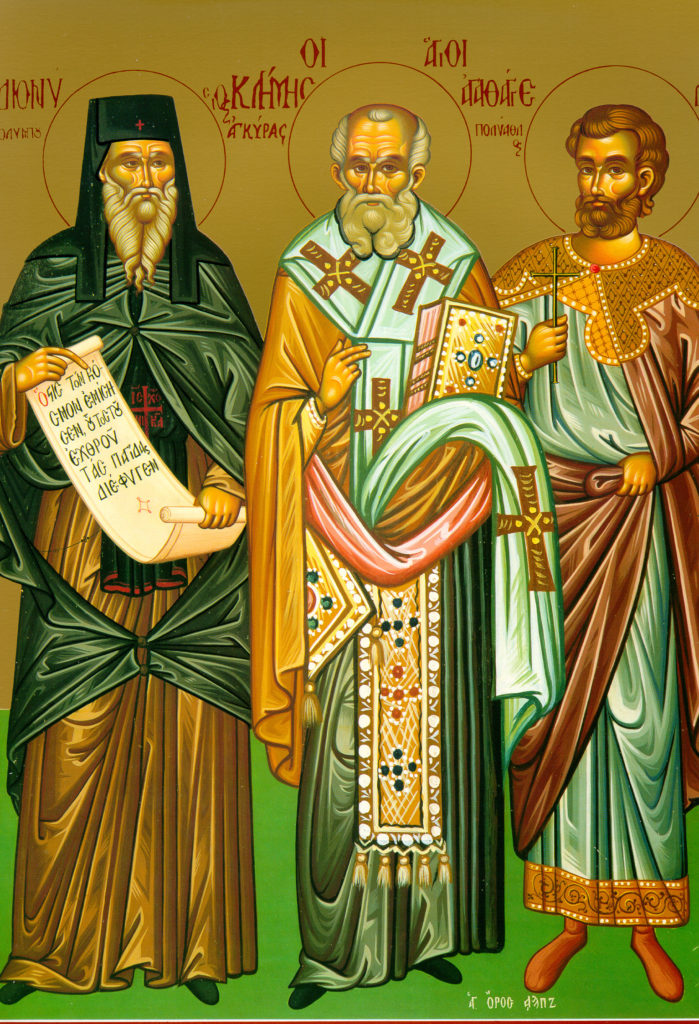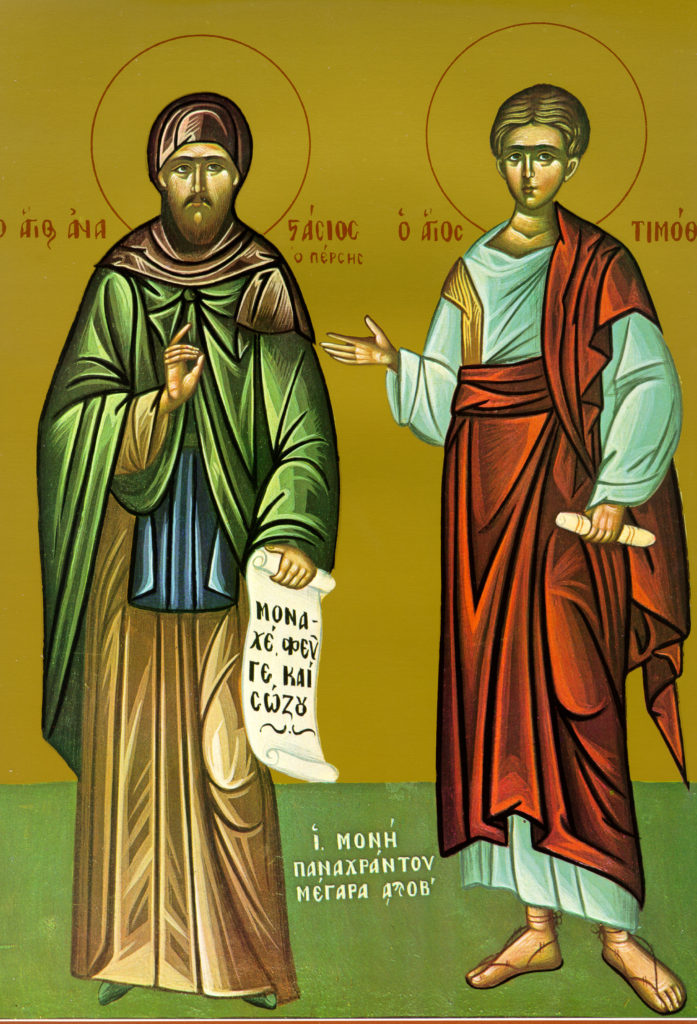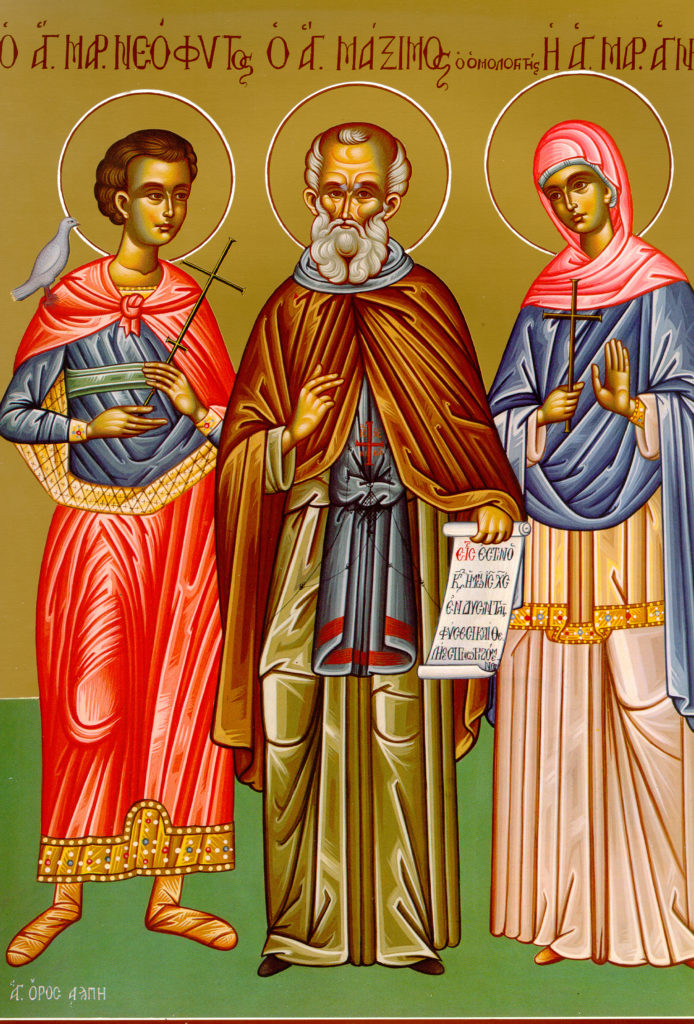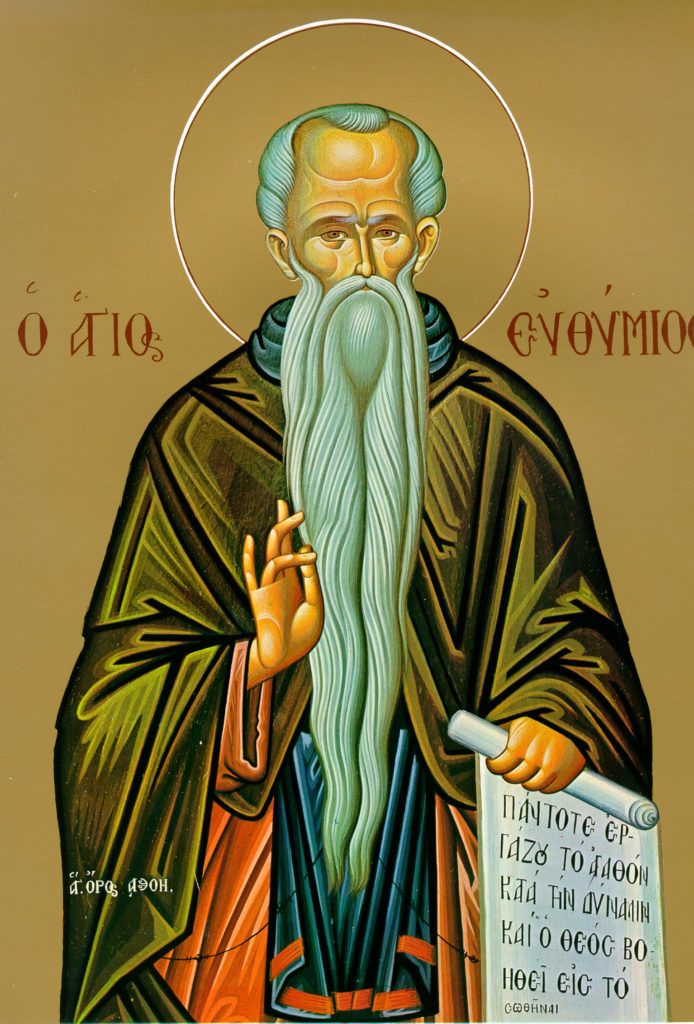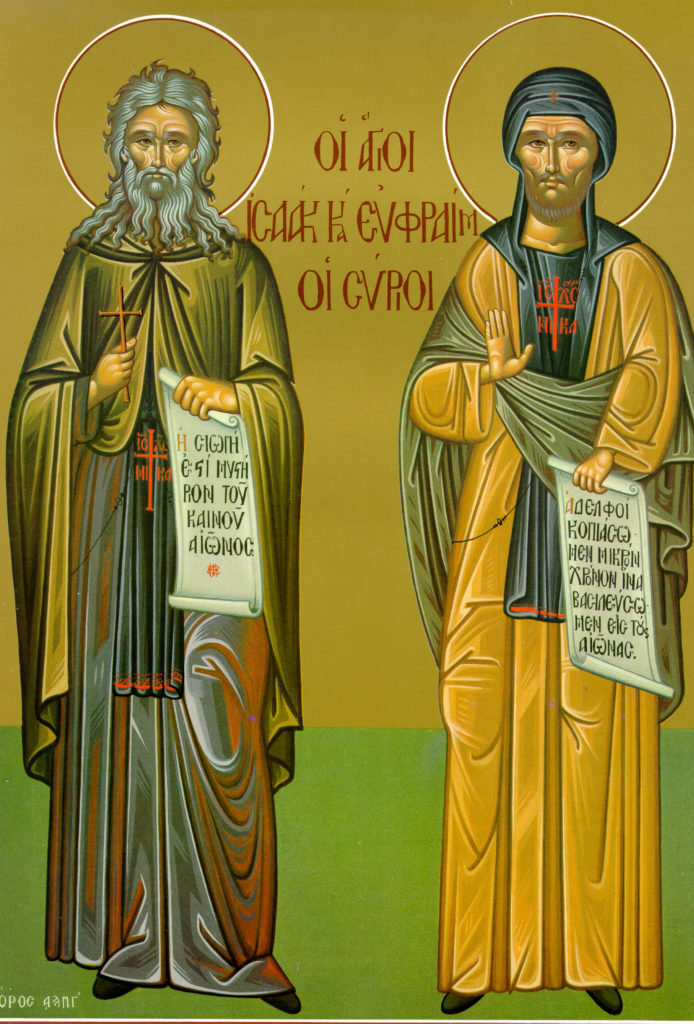

Our venerable father Ephrem the Syrian, bishop of Nineveh, who, first in his own hometown of Nisibis, exercised the office of preaching and of handing on holy teaching. Then, when the Persians invaded Nisibis, he fled with his disciples to Edessa in Syria, where he set down the fundamentals of a school of theology, fulfilling his ministry by his words and writings. So striking is the austerity of his life and clarity of his teachings that from the exquisite hymns he composed he has deserved to be called the harp of the Holy Spirit.
Troparion
Your abundant tears made the wilderness bloom, and your suffering made your labors fruitful a hundredfold; you became a shining torch over the world. O venerable father Ephrem, pray to Christ our God that He may save our souls.
Kontakion
Ever conscious of the hour of judgment, you shed tears of bitter lament, O Ephrem. Your activity embraced the life of silence which you loved so dearly. By your actions you have taught us. You have spurred the lazy to repentance.
Readings for Ephrem
Epistle
Galatians 5:22 – 6:2
Brothers & sisters: The fruit of the spirit is love, joy, peace, patient endurance, kindness, generosity, faith, mildness and chastity. Against such there is no law! Those who belong to Christ Jesus have crucified their flesh with its passions and desires. Since we live by the spirit, let us follow the spirit’s lead. Let us never be boastful, or challenging, or jealous toward one another.
Brothers and sisters, if someone is detected in sin, you who live by the spirit should gently set him right, each of you trying to avoid falling into temptation himself. Help carry one another’s burden; in this way you will fulfill the law of Christ.
Gospel
Matthew 11: 27-30
The Lord said to his disciples: “Everything has been given over to me by my Father. No one knows the Son except the Father, and no one knows the Father except the Son– and anyone whom the Son wishes to reveal Him.”
“Come to me, all you who are weary and find life burdensome, and I will refresh you. Take my yoke upon your shoulders and learn from me, for I am gentle and humble of heart. Your souls will find rest, for my yoke is easy and my burden light.”
Readings for the day
Epistle
2 Peter 3: 1-18
Dearly beloved: I am writing you this second letter, intending them both as reminders urging you to sincerity of outlook. Recall the teaching delivered long ago by the holy prophets, as well as the new command of the Lord and Savior preached to you by the apostles.
Note this first of all: in the last days, mocking, sneering men who are ruled by their passions will arrive on scene. They will ask: “Where is that promised coming of his? Our forefathers have been laid to rest, but everything stays just as it was when the world was created.” In believing this, they do not take into account that of old there were Heavens and the earth drawn out of the waters and standing between the waters, all brought into being by the word of God. By water that world was then destroyed; it was overwhelmed by the deluge. The present heavens and earth are reserved by God‘s word for fire; they are kept for the day of judgment, the day when godless men will be destroyed.
This point must not be overlooked, dear friends. In the Lord‘s eyes, one day is as 1000 years and 1000 years are as a day… The Lord does not delay in keeping his promise – those some consider it a “delay.” Rather, he shows you generous patience, since he wants none to perish but all to come to repentance. The day of the Lord will come like a thief, and on that day the heavens will vanish with the war; the elements will be destroyed by fire, and the earth and all its deeds will be made manifest.
Since everything is to be destroyed in this way, what sort of men must you not be! How holy in your conduct and devotion, looking for the coming of the day of God and trying to hasten it! Because of it, the heavens will be destroyed in flames and the elements will melt away in a blaze. What we await are new heavens and a new earth where, according to his promise, the justice of God will reside.
So, beloved, while waiting for this, make every effort to be found without stain or defilement, and at peace in his sight. Consider that our Lord‘s patience is directed toward salvation. Paul, our beloved brother, wrote you this in the spirit of wisdom that is his, dealing with these matters as he does in all his letters. There are certain passages in them hard to understand. The ignorant and the unstable to start them (just as they do the rest of Scripture) to their own ruin.
Gospel
Mark 13: 24-31
The Lord said to his disciples: “During that period after trials of every sort the sun will be darkened, the moon will not shed it’s light, stars will fall out of the skies, and the heavenly hosts will be shaken. Then men will see the Son of Man coming in the clouds with great power and glory. He will dispatch his angels and assemble his chosen from the four winds, from the farthest bounds of earth and sky. Learn a lesson from the fig tree. Once the sap of its branches runs high and it begins to sprout leaves, you know that summer is near. And the same way, when you see these things happening, you will know that he is near, even at the door. I assure you, this generation will not pass away until all these things take place. The heavens and earth will pass away but my words will not pass.”
Icon courtesy of Jack Figel, Eastern Christian Publications – ecpubs.com


